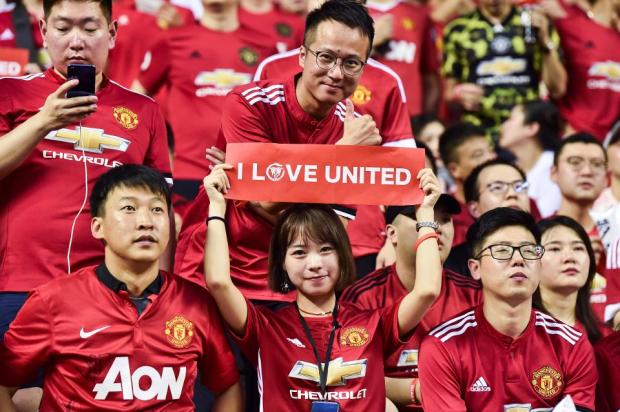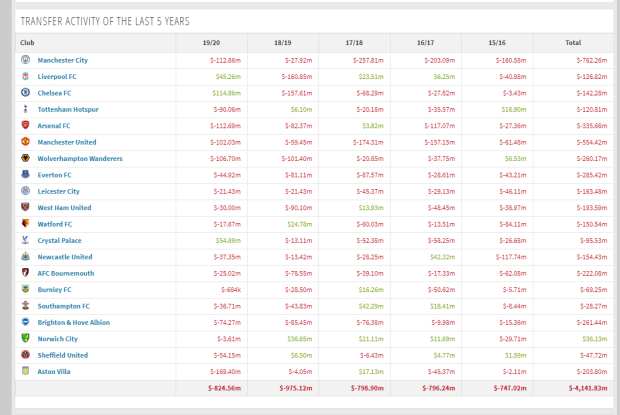The football world was shaken to it’s core on Friday evening with the announcement that UEFA had banned Manchester City from European competition for two years. The governing body of European football took this momentous step because of financial fair play (FFP) breaches along with misleading information provided by the club.
This is a talking point that rumbles on almost a week later. This appears a solitary case, but the ramifications of this could spread far beyond Europe. For now the dispute rumbles on, but what could this mean for the future of football? Let’s examine the events that led to this moment.
Manchester City are accused by UEFA of overstating sponsorship revenue they received to circumvent FFP rules. The estimated £200m allowed the club greater financial flexibility to sign top players like Kevin de Bruyne, Leroy Sane and John Stones. It also helped to pay their £300m wage bill, the third most in world football behind Barcelona and Real Madrid.

De Bruyne has been key to City’s success since signing in 2016, the last year of which City are alleged to have breached FFP rules. Photo: Manchester City
This extra money via alleged financial doping unquestionably helped lay the foundations for the juggernaut team that won the Premier League and League Cup in 2018 as well as an F.A Cup in 2019. Some have now questioned the validity of these successes, knowing the club could have cheated to attain them.
This UEFA investigation opened in November 2018 after leaked internal emails from the club surfaced at German publication Der Spiegel as part of their Football Leaks platform. The whistleblower Rui Pinto now sits in a Portuguese prison awaiting trial for hacking charges. UEFA had previously punished City and PSG in 2014 for rules breaches, reaching a financial settlement with the two clubs.
This previous punishment helps explains the ongoing rift between Manchester City and UEFA. The club responded immediately on Friday night, releasing a statement protesting their innocence as well as besmirching the investigation as one of bias with a pre-determined guilt. The club have now employed an army of lawyers to help with their appeal to the Court of Arbitration for Sport (CAS).

This is what City chairman Khaldoon Al Mubarak is reported to have told FIFA president Gianni Infantino in the past. Could this antagonistic attitude cost the club? Photo: City Extra/Twitter.
A large bone of contention between the two entities is the level of dialogue. UEFA believe that City were either non-cooperative or misled the investigation, which factored into their much larger punishment. UEFA has given similar punishments in recent years to the likes of A.C Milan, who were banned from Europe for one season.
The fact City didn’t cooperate with the investigation will have factored into their two year ban. City themselves have refuted this, believing that they provided all necessary information and cooperation in this investigation, despite consistent leaks to the media.
This decision from UEFA will now be played out at CAS, and could last for several years. This is a landmark case for both parties, with the loser sure to come out of this bloodied. If Manchester City lose, they could lose star manager Pep Guardiola along with a host of players. If UEFA lose, the FFP system will lose all authority as clubs ride roughshod over it.

City fans made their feelings towards UEFA known at their Premier League game against West Ham. Photo: EMPICS Sport
Whatever happens, UEFA could lose in the long run. City could use their two-year suspension to build their global brand playing lucrative friendlies in attractive markets such as Asia and North America. If UEFA lose this ruling, it will be a humiliating defeat that will only embolden prestige clubs to create their own breakaway European Super League.
Since taking over the club in 2008, owner Sheikh Mansour has invested hundreds of millions of pounds to elevate City to a competitive level. Since Guardiola took over in 2016 the club have a net spend of £340m. The club have the fifth highest income in football, however this drops to eighth if you discount the troublesome Etihad deal.
The club have been in the shadow of city rivals Manchester United for almost their entire history. United are a truly global club and have become a hugely successful brand across the world, in part thanks to their historic successes. This is something City have been trying to build in just over a decade.

City rivals Manchester United have a global supporter base thanks to sustained success. This is something City are playing catch up to. Photo: China Group via Getty Images.
FFP restrictions limit the Man City model of a wealthy owner pouring money into the club until they are successful a la Roman Abramovich at Chelsea. City haven’t had enough time to build their global brand, so to compete with the best in England and Europe they will have felt under pressure to use the owners money to even the playing field.
Some pundits have already hypothesized a very small positive to come out of this for City. With looming sanctions, will they turn this into a motivational boost to win the Champions League this year. For the club, it would no doubt give them great satisfaction to be handed the biggest prize in club football by the people they are going up against in court.
This legal dispute feels like a landmark moment for European football that could have far reaching consequences in the near future. Will UEFA be able to stamp its authority, or will City show that big clubs now have the power in football? The legal battle will no doubt be ugly, however it seems this will be difficult for City to overcome.
They have never said the leaked documents were fake, so it seems clear cut that they broke the FFP rules they agreed to every season when they play in the Champions League. The emails and their reactionary statement show a level of arrogance at the top levels of the club that only sways neutrals to UEFA’s side. Maybe City can force UEFA into a reduced punishment, but for now it seems City are bang to rights and need to take their punishment.
Do you have any thoughts on this piece? Let me know on Twitter @JWjournalism. Thank you for reading this article, I really appreciate it!






























